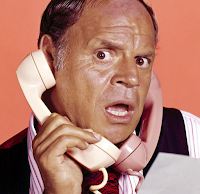Southern Bastards Volume 2: Gridiron
Written by Jason Aaron
Drawn and Colored by Jason Latour
Lettered by Jared K. Fletcher
Published by Image Comics
“You seein’ it, boy?”
“I see so many X’s and O’s I can’t think straight.”
“But do you see the face of God?”
Jason Aaron and Jason Latour are making it difficult to figure out just what kind of comic series their Southern Bastards is supposed to be. The first book Here Was A Man was fairly clear that it was going to be the story of Earl Tubbs, a man who maybe wasn’t good but he was a lot better than the world he grew up in. And it seemed like after returning to that world after forty years, he was going to take a stand and to be a hero. And then Euless Boss, the Coach of the local high school football team, brutally beat and killed him. It was an ending that you just didn’t see coming. Tubbs lost to the villain of the town. So, how do Aaron and Latour follow that up? In Southern Bastards Volume 2: Gridiron, they almost make us think that Euless Boss is the hero by telling us his secret origin.
Euless is a sad kid and a horrible adult. He’s one of those kids who tries out for the football team to try to win his father’s love only he doesn’t deserve it. And his father certainly doesn’t deserve the love of his son. A criminal by nature, the elder Boss brings nothing but pain and evil into his son’s life. So Euless’ way to try to create some kind of love in his father is through domination, transferring that pain to the offensive players on the opposing football teams. Describing the meaning he found on the football field, Euless says, “Beating somebody so bad you knock the fight out of ‘em. Ain’t nothin’ in the world feels better than that.”
Even though he was barely more than a kid when he said that to his father, it’s still the desire that Euless is chasing as an older man. It was not enough to beat Earl Tubbs in the first book. Coach Boss had to take the fight out of Earl and the only way to do that was to kill him. Even beyond Earl Tubbs, Boss needs to take the fight out of everyone in town. He needs to show up at Earl’s funeral to prove that he’s not scared of what he’s done. He put Earl’s stick, the weapon of Earl’s father, up on display for the whole town to see. In high school football, it was about dominating the other team to gain some measure of love but now it’s about dominating everyone because if he can’t have their love (and he knows he’ll never have that,) he’ll have their respect and their fear. And when when Earl showed that he wouldn’t give Boss respect or fear, Boss took his life.
The stories of Euless and Earl are not that different. Between the two books, Aaron and Latour look to be telling the stories of a hero and a villain but really they are telling the stories of two sons. Earl and Euless are the sons of their father but they’re also the sons of Craw County, Alabama, where football rules supreme. In Boss’s side of the story, we see the kid from the wrong side of the tracks who on the outside looked to have made quite a name for himself. In contrast, Earl was the high school football hero and sheriff's son who disappeared after graduation and was practically forgotten about.
And while Boss is learning to be a football player, his mentor and friend is Big, a blind black man who is only the ballboy on the football team. He may be blind but he sees so much more of the game than Boss could ever hope to. When he asks Boss “... do you see the face of God?” it could be an ironic moment, a blind man asking a kid that question but I don’t know if Aaron and Latour think it is. When Big asks Boss that question, he’s looking for a specific answer from Boss. Of all of the role models in Boss’s life, Big is the one who can teach him something new. Big is the mentor who maybe has a chance of putting Boss on the road of salvation or at least a road out of Craw County. Big is asking Boss that question to find out if Boss can see the grace and beauty that can be found in the game but Boss only sees the X’s and O’s. He only sees the mechanics of the football life without seeing the essence of it.
The anger and rage in Southern Bastards Volume 2: Gridiron is palpable even as the character try to pretend that it is not there. The way that Boss treats the killing of Earl Tubbs isn’t prideful or damning. It’s anger that he feels; anger towards the people who won’t respect him unless he shows how dominating he’s capable of being. He fought for that respect when he was a high school junior trying out for the football team and he’s fighting for that respect still as he coaches that same team years later. Like the story of Earl Tubbs in the previous book, Euless Boss is a tired man in a tireless struggle.










